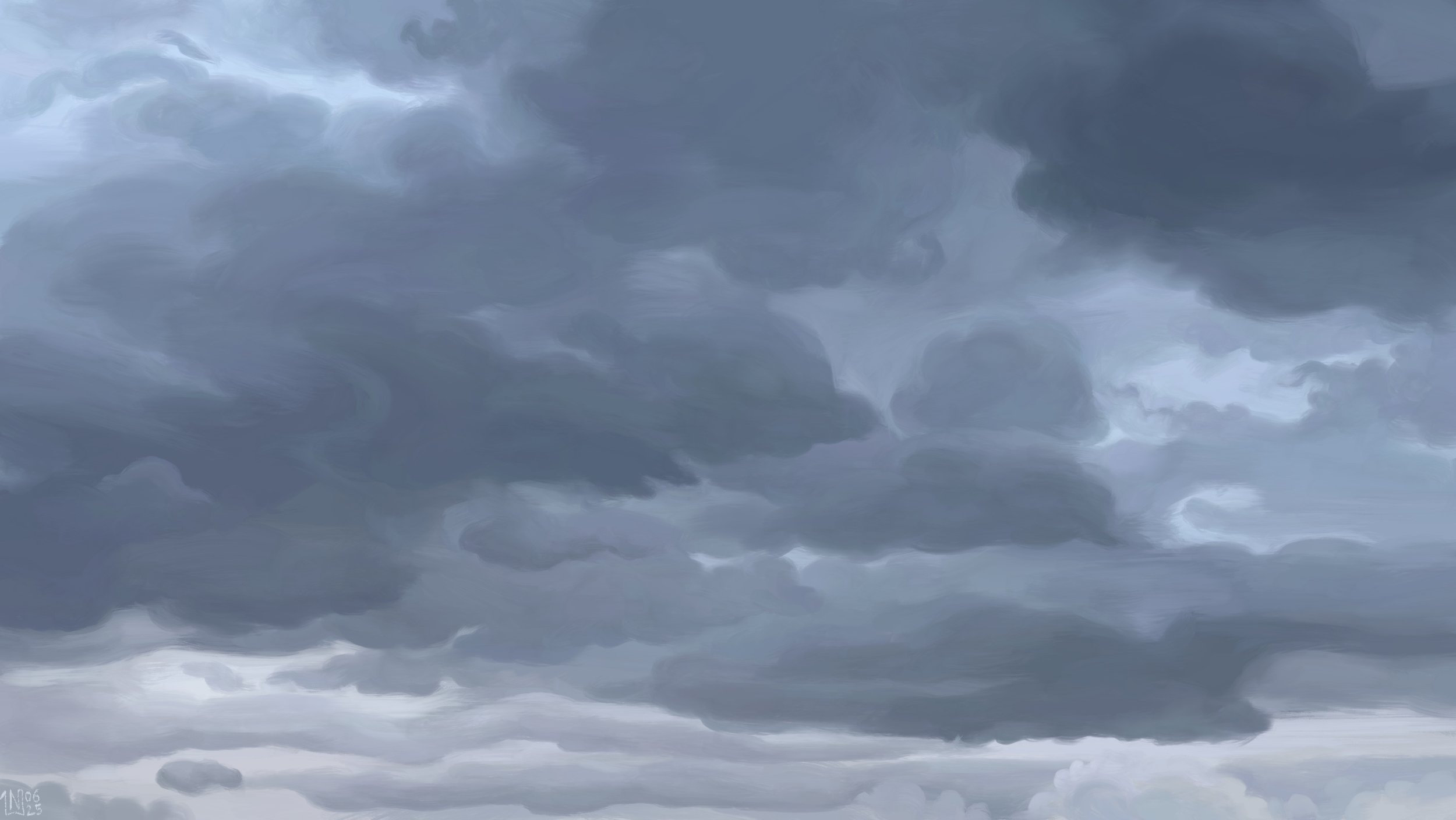
We report as nightfall grows nearer: the calls of the chimney swifts echo across the pasture, high-pitched chirps that we have been hearing through the whole evening. In the colder months, the belt of Venus would have been visible, but the horizon remains perfectly clear today.

We report: it is an odd reminder that we are still able to feel cold at this moment, but the humidity is not at the service of the heat anymore. It is an abstract hour of the almost morning, the wind is blowing into our eyes and ears, and the clouds are somehow pinned into place.

We report: we fall into July with morning rain, and the sky is a sweet shade of dark overcast. On the open sea that is the undulating clouds, we relish the absence of a horizon line. A lot of the June heat is running down the side of the road, a long overdue respite.

We report while June winds down, still hot, still bright. We try to treasure the light that we only get to enjoy in the weeks surrounding the solstice. It means we often catch ourselves with our chin in our hand, looking through the window until there is nothing left to see.

We report: deep in the night, the thinnest drizzle falls in near silence, almost unseen if it were not for the streetlights. We walk through the clouds, the front of our coat catching most of the water as we disturb its suspension. In the morning, it will all look like dew.

We report mid-morning: this time, there was no waiting around for rain. It looked like it was about to rain, and then it rained, which was a straightforward process that we appreciated for both its simplicity, and the fact that it happened. Now, we would like for it to continue.

We report: noon light above the growing crops, the sun is pressing down on our face, hot and sharp. There is not a lick of a breeze to displace the mass of heat on the ground, yet we see the soil breathe when we watch with intent. And we watch. And the horizon line oscillates.

We report: the loudest nights are upon us. The frogs, the cicadas, the bats, and the odd owl are all working together to drown out the mosquitoes, for which we are thankful. Near the ground, the humidity cuts through the heat of the days, and a sense of peace washes over us.

We report in the late afternoon: we saw the bewilderment in the eyes of our expert before we saw the funnel cloud for ourselves. It never made it to the ground; there was never a storm, nor even a cumulonimbus in sight. And just as quickly as it had formed, it vanished.

We report: the sky has frozen into the motion of the wind, all the ways across, turbulence and all. This quilt is stitched in sunshine, ice, and time - fragile pieces of fabric, and it is no wonder that it is already starting to unravel. The waves get rowdier among the clouds.

We report on the earliest of mornings of the year: the ruins of the night are coming down in premature warmth. We are already awake, unable to sleep in the summer fever; our expert is still deep in their dreams. The sun is barely above the horizon, cloaked by the clouds.

We report at the height of today’s temperatures: it would appear that these skies cannot bear heat for long before they get overwhelmed — in the same fashion we do. This afternoon, while walking in the sun, we did silently plead for some shade, and it seems we conjured it up.

We report in unpeopled landscapes of the sky continent: the sunshine is travelling through depths of steam, and the little bit that makes it out comes away changed, carrying specks of gold and copper. Midnight draws near when the vision begins to fade from our mind.

We report: this morning, the clouds are crawling as low and as languidly as possible in the sky. The sun rises so early these days, yet it seems that we are taking our sweet time catching up to it. It feels like the bite in the air is setting us back a few weeks in the season.

We report about dissolving cirrocumulus. We find they are transitory; they have the elegance of cirrus, and the chaotic nature of cumulus. Forming at high altitudes, they still contain liquid water. As creatures of contradiction, they do not tend to stick around too long.